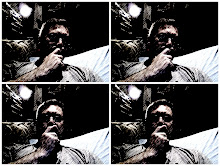 SLEEP, sleep, old sun, thou canst not have repass'd,
SLEEP, sleep, old sun, thou canst not have repass'd,As yet, the wound thou took'st on Friday last ;
Sleep then, and rest ; the world may bear thy stay ;
A better sun rose before thee to-day ;
Who—not content to enlighten all that dwell
On the earth's face, as thou—enlighten'd hell,
And made the dark fires languish in that vale,
As at thy presence here our fires grow pale ;
Whose body, having walk'd on earth, and now
Hasting to heaven, would—that He might allow
Himself unto all stations, and fill all—
For these three days become a mineral.
He was all gold when He lay down, but rose
All tincture, and doth not alone dispose
Leaden and iron wills to good, but is
Of power to make e'en sinful flesh like his.
Had one of those, whose credulous piety
Thought that a soul one might discern and see
Go from a body, at this sepulchre been,
And, issuing from the sheet, this body seen,
He would have justly thought this body a soul,
If not of any man, yet of the whole.









